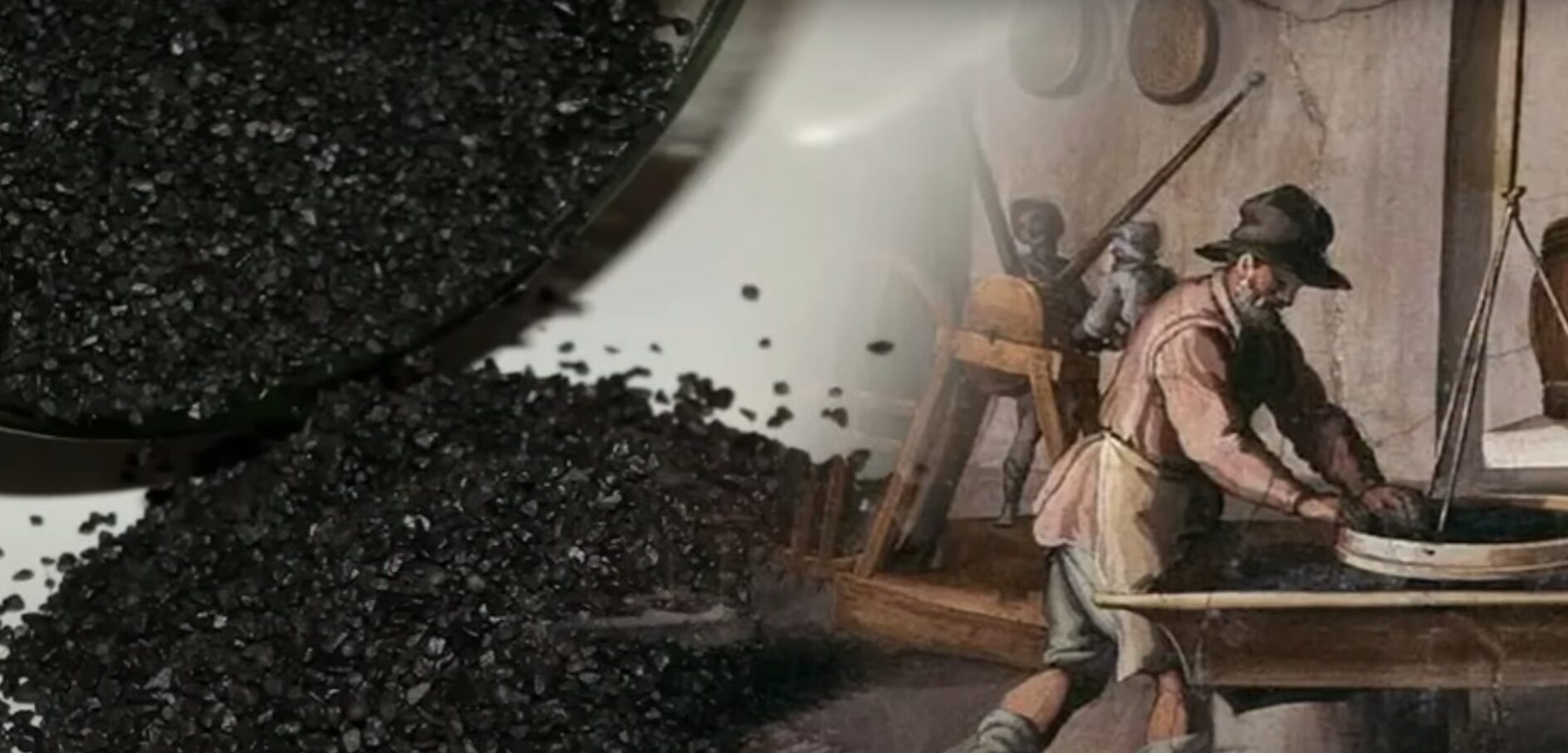Some of history’s most important discoveries have happened by accident. The invention of gunpowder began with people searching for something completely different: a potion for immortality. This event was not a matter of destiny, but a coincidence that could have happened anywhere, or not at all.
Instead of focusing on the usual timeline, this article looks at a world where the Greeks—not the Romans—stumbled upon gunpowder long before it changed war and technology in China or Europe. The story explores how the Greeks, with their creative mindset, might react to such a dangerous and new idea, and how the Romans could later pick up where the Greeks left off.
Key Takeaways
- The Greeks could have discovered gunpowder by accident during their golden age.
- Their reaction and eventual abandonment of gunpowder would shape its early legacy.
- Roman influence might lead to more practical uses and slow but steady adoption.
The Unlikely Beginnings of Gunpowder
Chance Discovery in Early China
People often believe that important inventions happen because civilizations are destined to create them. However, gunpowder was not a planned breakthrough. It came about when Chinese alchemists were actually searching for a way to live forever. By mixing different chemicals and hoping to create an immortality potion, they suddenly ended up with something explosive instead.
The timing and situation that led to this discovery were unusual. The chances of all ingredients coming together just the right way were extremely low. The Chinese could have missed it, and maybe another group might have found it centuries later—or possibly never at all.
| Ingredient | Intended Use | Actual Result |
|---|---|---|
| Various powders | Immortality mix | Explosive mix |
How Random Events Shape New Ideas
A lot of people think that, over time, every civilization would eventually invent the same things. But gunpowder was not a natural step in technology. Its invention was an accident, not the result of a logical path every society must follow.
Gunpowder’s story is a good example of how coincidence can bring about changes in history. The context and timing were so rare that another civilization could have lived, advanced, and disappeared without ever mixing the right ingredients. It did not happen because it had to—it happened because of a once-in-history combination of curiosity, luck, and random events.
A New View on How Technology Develops

Different Routes to Invention
Often, people think that major discoveries, like gunpowder, were bound to happen a certain way. But history shows that some discoveries are accidents that only happen under very special conditions. For example, the idea that gunpowder had to be invented by the Chinese is not true. Any civilization, given the right set of strange events, could have made the discovery—or it could have never happened.
It is a mistake to assume every advanced society would naturally invent the same things. Some, like the Greeks, had much more creative thinkers compared to the Romans, but they sometimes lacked the desire or push to make dangerous inventions practical. The Romans were more interested in taking good ideas from others and developing them, but their own creativity was usually less wild.
Key Points:
- Discoveries can be pure chance, not destined paths.
- Creativity, motivation, and safety all affect who invents what.
- Different societies have different strengths when it comes to making new things.
Was Gunpowder Really Inevitable?
Gunpowder was not a guaranteed step in human progress. For centuries, no one knew it existed. When the Greeks in this scenario happened on gunpowder while looking for other things, they treated it as odd and risky, not something to keep using. They might have written about it and shared what it could do, but most saw it as too dangerous to explore further.
Much later, when the Romans ended up controlling Greek lands, they learned about this substance. Unlike the Greeks, the Romans saw its potential for war and worked to put it to use, facing many dangers as they tried. These efforts show that gunpowder was not a must-have invention for any civilization. It took a unique mix of creativity, risk, and need before anyone actually tried to use it.
| Civilization | Approach to Gunpowder | Reason for Approach |
|---|---|---|
| Greeks | Mostly avoided or ignored | Saw it as risky and strange |
| Romans | Pursued its military uses | Wanted to gain advantages in wars |
Summary in a List:
- Gunpowder could have been discovered any time, or not at all.
- Early discovery didn’t mean it would always be used or improved.
- It was only by chance, need, and persistence that gunpowder became important.
Imagining an Earlier Gunpowder Discovery

Creating the Alternate Timeline
Instead of the Chinese in the Tang dynasty, in this scenario it is the Greeks who stumble upon gunpowder by accident during their golden age, hundreds of years before Rome’s dominance. Their goal is not to invent weapons, but the discovery happens while searching for something else entirely.
- The Greeks view the new substance as strange and dangerous, almost like magic.
- They record its formula and effects, but avoid further experiments due to safety fears.
- The concept of gunpowder spreads, but no one takes the risk to develop it further.
- Later, under Alexander the Great, there is a brief interest in using gunpowder for warfare, but it does not lead to lasting innovation or significant advances.
Effects on Early Societies
Ancient societies are introduced to gunpowder much earlier, but the reaction is cautious.
Greeks:
| Characteristic | Response to Gunpowder |
|---|---|
| Creativity | High, but cautious |
| Experimentation | Minimal due to safety |
| Long-term adoption | Ignored, called dangerous |
Romans:
- When Rome conquers Greece, they gain access to the forgotten knowledge of gunpowder.
- Roman culture is more persistent and willing to experiment, despite many accidents.
- Over time, gunpowder becomes a focus for weapon inventions, risking many lives in the process.
- It takes the Romans generations to adapt gunpowder to their military after gaining the knowledge.
Summary Table: Ancient Response to Early Gunpowder
| Civilization | Attitude Toward Gunpowder | Willingness to Use | Main Barrier |
|---|---|---|---|
| Greeks | Fearful, cautious | Low | Seen as dangerous |
| Romans | Persistent, ambitious | High | Costly accidents |
The change in the timing and culture of discovery creates a world where gunpowder is known, but only slowly and painfully developed into a useful technology.
How the Greeks Stumbled Upon Gunpowder

Why the Greeks Discovered It Instead of the Romans
When thinking about ancient societies, it might seem like the Romans would be the first to invent something as important as gunpowder. But the Greeks actually made this discovery long before the Romans reached their peak.
The timing made a big difference. If the Romans had found gunpowder later, during their decline, they would not have had the strength or resources to use it well. The Greeks, living in a creative and curious age, were simply more likely to stumble onto something new during their experiments.
| Civilization | Main Strength | When They Might Discover Gunpowder |
|---|---|---|
| Greeks | Creativity | Golden Age, 5th-4th centuries B.C.E |
| Romans | Innovation, Adaptation | After conquering Greece or at Empire’s peak |
Imagination or Invention: The Difference Between Greeks and Romans
The Greeks and Romans thought differently about new ideas. Greeks were great at creative thinking and had many original thoughts. They were always curious and imagined strange or new possibilities. However, they did not always try to build or use the things they dreamed up. Romans, on the other hand, were good at improving and using inventions, but were less likely to come up with wild new ideas on their own.
- Greeks: Loved to experiment and dream about how things could work
- Romans: Preferred to make things better, not always to invent from scratch
This difference explains why the Greeks found gunpowder but did not use it much, while the Romans later saw its value and worked hard to put it into practice.
The Golden Age and Accidental Discoveries
During the Greeks’ Golden Age, scientists and thinkers ran many experiments using all sorts of chemicals and natural substances. The search for strange effects or new mixtures was common. Gunpowder was not discovered on purpose. Instead, it happened by accident, just like in China many years later.
The Greeks wrote and talked about this new, dangerous material. However, they thought it was more like magic and very risky. Most were too scared to keep experimenting with it. Only later, when Alexander the Great came along, did people try again to use gunpowder as a weapon. But after his short rule, and as his empire broke up, interest faded, and gunpowder was forgotten again until the Romans came into power.
Greek Responses and Outcomes
Early Rejection of Explosive Mixtures
The Greeks discovered gunpowder by chance during their golden age, while experimenting with different substances. After realizing its explosive and dangerous nature, they quickly chose to stop exploring its potential uses. Greek scholars and writers described the formula and nature of this mysterious substance but warned against further experimenting with it.
Viewing Gunpowder as Magic or Superstition
Many Greeks compared the powder to acts of magic or sorcery because of its unpredictable and dangerous effects. People saw it as a risky discovery better left alone. Warnings were spread about the possible dangers, and most avoided it, treating it with superstition and suspicion.
| Greek Beliefs about Gunpowder | Description |
|---|---|
| Dangerous Substance | Too lethal to experiment |
| Similar to Sorcery | Unnatural or forbidden |
| Not Practical | Unfit for daily use |
Alexander’s Military Trials with Explosives
Later, Alexander the Great showed interest in using gunpowder as a weapon to help his armies during his campaigns against Persia. He attempted some experiments to improve his conquests with this new material. However, his short reign and fast-moving campaigns meant that these efforts did not lead to lasting innovation. After his death and the splitting of his empire, the Greeks again set aside gunpowder, viewing it as too dangerous and unstable for war.
Overlooked Invention and Greek-Roman Exchange
Gunpowder Fades After the Age of Alexander
After its accidental discovery by the Greeks during their classical period, gunpowder was quickly set aside. The Greeks viewed this powerful mixture with suspicion and fear, linking it more to unsafe experiments than to useful technology. They described its formula and strange properties, but most saw it as too risky to continue exploring.
For a brief moment, Alexander the Great considered using gunpowder for military campaigns. However, his reign was too short for any real advances to happen. Once his empire split apart, interest in gunpowder faded even more. Among the Hellenistic states, the substance became little more than a curious footnote, treated with caution and mostly avoided.
| Era | Response to Gunpowder |
|---|---|
| Classical Greece | Viewed as dangerous, avoided further use |
| Alexander’s Conquests | Brief experiments, little progress |
| Hellenistic Successor States | Largely forgotten, considered unsafe |
Knowledge Moves West to the Romans
When Rome defeated Greece and took control of the region, it gained access to Hellenistic ideas and inventions. Roman thinkers and engineers became aware of gunpowder through Greek writings and stories. Unlike the Greeks, Romans were more willing to experiment and take risks if it meant gaining an advantage.
The Romans worked for years, trying to understand and apply the explosive qualities of gunpowder, especially in warfare. Many Romans died in accidents during these early experiments. Still, they persisted, valuing innovation that could support their expansion.
Key Points:
- Greek caution slowed early use of gunpowder.
- Roman curiosity and ambition pushed them to develop the substance further.
- The spread of knowledge from Greece to Rome led to new interest, despite the dangers involved.
Roman Approach vs. Greek Caution
| Civilization | Attitude Toward Gunpowder |
|---|---|
| Greeks | Abandoned experiments, saw it as too dangerous |
| Romans | Continued research, accepted risks for possible benefits |
Roman Development and Change
Ongoing Efforts in Military Technology
The Romans kept working on turning new ideas, like gunpowder, into weapons for their armies. They did not give up easily, even though it took a lot of time and people made mistakes. Their focus was practical: if something could help them in battle, they would keep trying until it worked.
- Timeline: Progress was slow, often taking centuries
- Goal: Improve military advantages
- Process: Experiment, adapt, repeat
Difficulties and Costly Failures

Adopting gunpowder came with many problems. Roman engineers and workers faced danger every time they tried to make or use it.
Main Points:
- Many people were hurt or killed in accidents
- Setbacks made development slower
- Fear and accidents often stopped some from working with gunpowder
| Challenge | Impact |
|---|---|
| Deadly accidents | Many lost lives |
| Slow progress | Innovation delayed |
| Fear among workers | Fewer experiments |
Views on New Ideas
Romans had a strong drive to take, improve, and use the knowledge of other cultures. They were not very creative in making new things from scratch, but they were quick to see how something could be useful.
- Interested in useful inventions
- Quick to improve what already existed
- Often depended on knowledge from other civilizations
This attitude led them to keep working on gunpowder, while others might have stopped because of danger or uncertainty.
